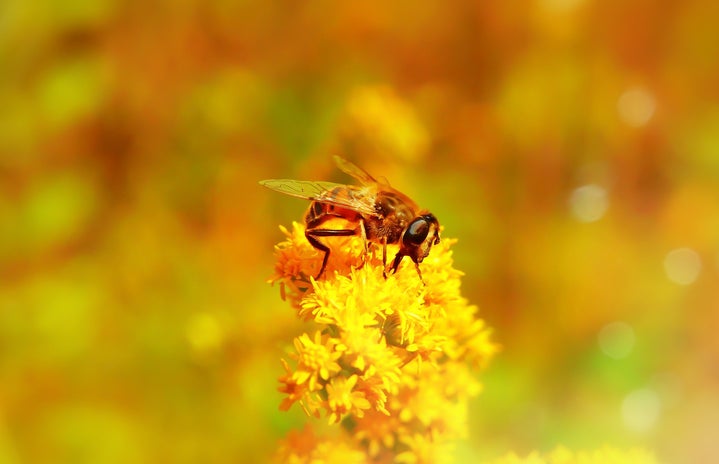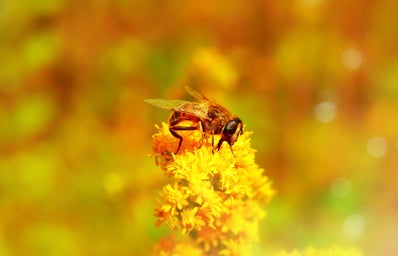The seasons have changed and spring fever is among us. Flowers and trees are blooming, birds chirping act as our alarm clocks instead of phones, the crowds that once occupied indoor cafes and shops are now filling up outdoor parks and sidewalks, and the windows are down in the car rides. But where are all of the bees?
It has been all of the buzz over the past few years to “save the bees,” but no true action has been taken to do anything about it. This spring, it’s time to turn up the buzz and do something about it. People are unfamiliar with how vital bees are to our world, and your life. Quite frankly, without bees, some people would probably not be alive today.
Bees work everyday to make sure that we have beautiful flowers to admire, and they work to help put an end to world hunger! (Something I bet you didn’t know) Fruits, vegetables, nuts, and beans all rely on the work done by bees, and their life passion of pollination, to grow and thrive in order to be collected and provided to humans to eat. The agriculture value that bees have means a great deal to people, especially vegans and vegetarians. I know what you’re thinking, there are other pollinators like bats and birds, but they only pollinate on their own time when they are hungry or need the nutrients themselves, unlike bees who pollinate everyday. Without bees, we would be farming vegetables, fruits, nuts, and beans on birds and bats own time. Saving the bees can save us.
People who are starving or malnourished would probably see major health declines, adding more illnesses to the world and causing numbers in hospitals to rise. On Earth, 8.9% of the population, 690 million people, are suffering from world hunger. The work done by bees is what a third of the world’s food production depends on. To put this in perspective, every third spoonful of food depends on bees. Bees are inadvertently working with us to end world hunger! Healthcare is important, but when numbers can be lowered by simply saving bees to preserve and share their nutrients, it seems like a pretty good incentive to get to work to save them. Saving the bees can save us.
As the world is becoming more modern, humans are becoming more and more responsible at large for the extinction of bees. As our desire grows for more Targets, Markets, Shopping Malls, Starbucks, and Parking Lots, the habitats of bees are lost at our expense. Yes, I agree sometimes the need for an improvement or something new is valid, but why can’t we just make do with upgrading what we already have? So many abandoned facilities are taking up vital space that can be used for wildlife to inhabitat. The die-offs are happening primarily because insects are losing their habitats to farming and urbanization. Let us be still and appreciative for what we already have so that bees can get to work to help improve our quality of life.
As a population, we should not wait for our outdoor world to diminish in order to see the importance of bee lives. If we care about our family, friends, and ourselves, we should start to save the bees! Let them create their communities and habitats without disruption, letting them pollinate freely, and let them make their honey. A thriving ecosystem is the fountain of life for a bee, and to us a bee is our fountain of life. Spring has sprung, save the bees!



